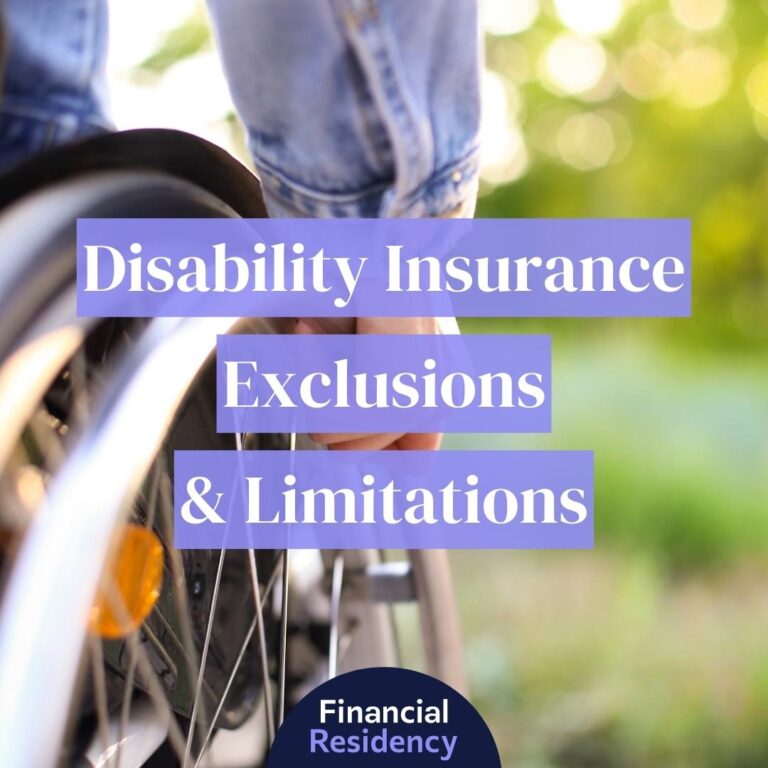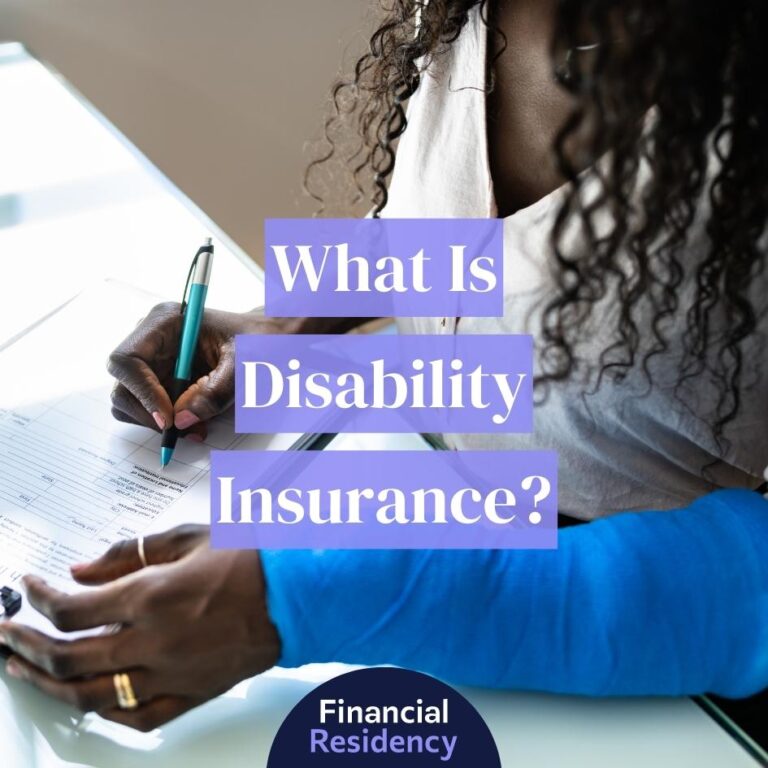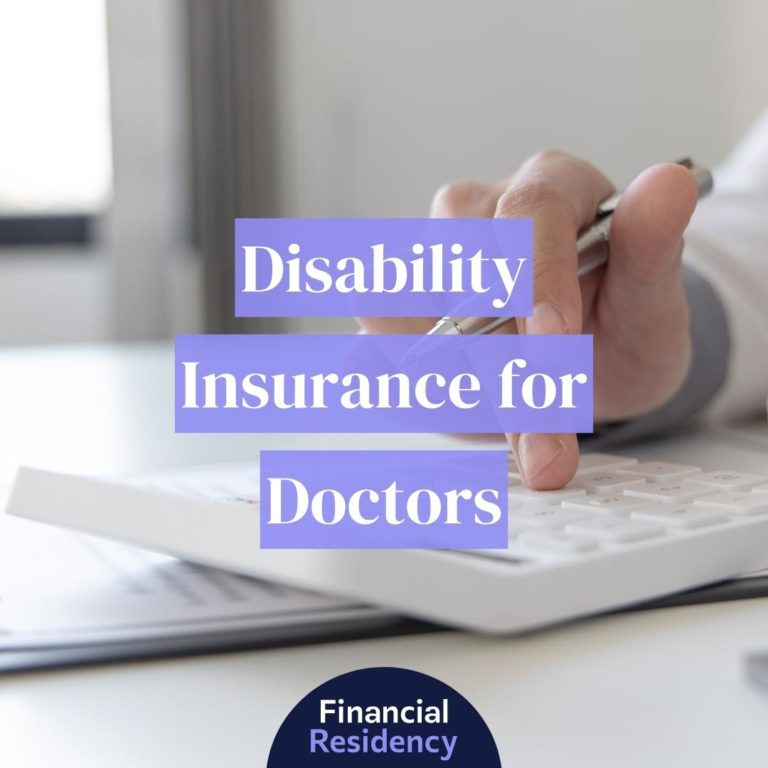Are you deciding whether or not you need disability insurance coverage? The mental abacus can be exhausting.
A list of the pros and cons can help you weigh out your decision, so here’s a list of the pros and cons associated with disability insurance to help you decide whether or not it’s worth the investment.
Pros of Disability Insurance
Here are the advantages of disability insurance:
- Protects Your Home & Other Assets From Loss
- You Can Focus on Recovery
- Continue to Meet Your Financial Obligations
- Avoid Debt, Bankruptcy, or Other Financial Emergencies
- Don’t Have to Rely on Social Security Disability Insurance (SSDI)
- Tax Benefits
- Can Often Qualify for Coverage Even with Pre-Existing Conditions
- Save Money if You Buy Disability Insurance & Life Insurance from the Same Provider
- Wide Range of Choices for Policies and Insurance Companies
- Greater Peace of Mind
1. Protects Your Home & Other Assets From Loss
You likely already have insurance to protect your most expensive assets, like your home, your boat, your car, or even jewelry and artwork. And you likely have health insurance too, through your employer or a private policy, to protect you from crippling medical bills.
Disability insurance can protect another important asset: your ability to earn money and provide for your family.
You may not think of your ability to earn money as an asset, but it is. It likely exceeds the worth of your home and other insured, high-value belongings.
If you earned $100K a year and didn’t make a single wage increase, over the next five years that’s $500K — not including any other benefits or compensation.
Imagine what the financial situation your household would be in without that $500K over the next five years. If that lack of income would be devastating — or at least extremely stressful — disability insurance is probably worth it. And even if your family wouldn’t hurt for those funds, many people see disability ability insurance — and any disability income — as an investment.
There are even disability insurance options for stay-at-home parents since their inability to work at home would have a major, negative financial impact.
Bottom line: your ability to earn money is an asset that you can insure and protect.
2. You Can Focus on Recovery
It’s hard to focus on chemotherapy treatment or recover from a stroke when you’re anxious about finances. This mental stress can actually prolong or worsen your illness or injury, making it take longer and more difficult to regain your health and return to work at full speed.
Disability insurance can replace most of your lost income if you meet the policy’s definition of a disability. This means you won’t have to rush back to work before you’re ready, or lay in bed worrying about bills.
3. Continue to Meet Your Financial Obligations
Disability insurance provides you with weekly or monthly income so that you can continue to meet your financial obligations when you are unable to work. In some cases, depending on your group disability insurance or individual policy, you’ll receive your full benefits for a pre-defined period in one lump payment (i.e., short-term disability payment for a mother out on maternity leave after childbirth).
Even while you are unable to work, your debts and financial obligations don’t go away. Utilities, mortgages, car payments and car insurance, student loans, credit card bills, and other monthly bills still need to be paid.
In many instances, you can contact these creditors and ask to temporarily suspend or lower payments. Be mindful of how doing so may impact your credit report, or if interest will continue to accrue.
If you disregard your bills, your private disability insurance benefits could be garnished or seized by creditors through a lien on your bank account and other legal proceedings. Some states, not all, will classify all disability benefits as exempt from garnishment. But the Federal Consumer Protection Act (FCPA) offers only limited protection; for some types of debt, social security disability insurance can be garnished.
4. Avoid Debt, Bankruptcy, or Other Financial Emergencies
Medical bills, injury, or illness are leading drivers for bankruptcy filings in America. They account for more than 40% of all bankruptcies filed. Either the filer or an immediate family member has massive healthcare costs they cannot repay.
With many households lacking an emergency fund or other assets to pay the bills, disability insurance can keep your family and their finances afloat so you can avoid bankruptcy or massive credit card debt.
Accidents or illnesses can happen to anyone at any time and even if there is other coverage (i.e., worker’s compensation), it can take months or longer for you to receive benefit payments. A short-term disability claim can typically pay out much sooner, usually within 7 to 30 days of the claim being submitted.
5. Don’t Have to Rely on Social Security Disability Insurance (SSDI)
Similar to not relying on worker’s comp, you don’t want to rely on the Social Security Administration (SSA) for long-term disability insurance (DI) coverage. On their own website, the SSA states that they deny 67% of claims.
In addition to a strict definition of disability, the Social Security Administration DI has other requirements apart from medical conditions.
To qualify, the recipients must have worked at least 40 work credits in their lifetime — 20 of which must have been earned in the past 10 years. Up to a max of 4 credits can be earned per year, with each credit tied to a total earning amount for that year.
Private disability insurance covers a portion of your wages (typically up to 70%) and the claim submission process generally goes faster and smoother.
Additionally, disability insurance can provide more comprehensive coverage that is designed to provide specifically needed benefits for a set period of time.
6. Tax Benefits
There may be some tax benefits for your disability insurance policy depending on how the premiums are paid.
- Self-paid premiums: If you pay your own premiums for your own private insurance policy, the premiums are tax-deductible.
- Employer-paid premiums: If your employer pays for your disability insurance policy premiums (common for work-sponsored group policies), those premiums are not taxable for you. You don’t have to pay taxes for the premiums your business pays.
- Work-related injuries: Typically, any disability payments for work-related injury or illness are tax-exempt.
7. Can Often Qualify for Coverage Even with Pre-Existing Conditions
Disability insurance can be valuable for individuals with preexisting conditions who could not qualify for other forms of income replacement.
It’s easier to qualify for disability insurance than other types of insurance (i.e., life insurance) as the requirements are more lenient. This means people with pre-existing conditions may qualify for many different types of disability insurance and have income protection.
Also, many group disability insurance plans are offered through workplaces. This means even workers with preexisting conditions can qualify — this is especially valuable for those who may have difficulty finding new work should they become disabled.
Finally, coverage tends to be more comprehensive and benefits are usually dispersed much more quickly.
8. Save Money if You Buy Disability Insurance & Life Insurance from the Same Provider
You may be able to save money if you buy disability insurance and life insurance through the same company. While there is not a bundled rate for disability (the same way you might find for home and auto), you can often save money by buying multiple policies from the same provider.
9. Wide Range of Choices for Policies and Insurance Companies
There is a wide range of choices for different policies and disability insurance providers.
Choose from own-occupation or any-occupation disability insurance, how much coverage you want, any special riders (amendments) like Cost of Living Adjustment (COLA), and more.
With so many competing options, this makes the plans more flexible and the rates more affordable. Premiums for long-term disability insurance are generally about 1% to 3% of your income.
Make sure to read the fine print. Generally, the cheaper the policy, the more exclusions and the lower the payout.
10. Greater Peace of Mind
No one plans to have a disabling injury or illness that leaves you unable to work—life just happens. But if you have family, financial bills, and other obligations, disability insurance can give you greater peace of mind.
And while you may think that you’ll be fine—Grandpa Ed lived to be 108 and he was a smoker—consider that more than 25% of today’s 20-year-olds will have to miss at least one year of work due to a debilitating condition. And one in seven persons aged 35 to 65 will experience a disability or injury that lasts 5 years or longer.
Disability insurance isn’t just for car accidents or ski crashes; it can be for other conditions that render you unable to work like Covid-19, cancer, heart disease, or other chronic illness.
Cons of Disability Insurance
Here are a few potential disadvantages of disability insurance:
- Disability Insurance Policies Can Be Expensive
- May Require a Medical Exam
- Elimination Period Before Disability Coverage Benefits Begin
- The Process Can be Slow
- May Require a Deductible Payment
- Premiums May Increase Over Time
- Disability Benefits May be Taxable
- Coverage May Not Last Forever
1. Disability Insurance Policies Can Be Expensive
Disability insurance can be spendy. Consumers generally spend 1% to 3% of their income on a disability policy, and some plans can cost as much as 6%.
Commonly, plans with higher premiums are for older individuals, people with known chronic health conditions, or for jobs that make you more susceptible to a potential condition (i.e. pulmonary illness among coal mine workers).
2. May Require a Medical Exam
Some disability insurance plans may require you to undergo a medical exam as part of the application process. Often, a nurse may come to your home or place of business to take your vitals and a blood and urine sample. (They don’t just want to hear you’re a non-smoker; they verify it.)
While group plans do not generally require this (up to a certain benefit amount), or the medical requirements may be more lenient, for a private, individual plan you likely need to submit to a full physical exam.
3. Elimination Period Before Disability Coverage Benefits Begin
Disability insurance is not a replacement for any rainy day savings fund. There is a waiting period or elimination period from when you file your claim until when the benefits pay. Depending on the type of disability policy, the elimination period can be 7 to 180 days or even longer.
During this waiting period, you are responsible for all care costs and you will not be reimbursed. It’s designed so that the insured party has to pay some of the costs out-of-pocket before the benefit kicks in.
4. The Process Can be Slow
For many, the process to apply for disability insurance can be very confusing. To find a policy and get individual disability coverage, you will likely need to work directly with an agent at some point.
From the time you submit your application, it can take up to five to six weeks before the policy is issued. In some instances, it may take even longer. A medical exam is a common reason for the process to get drawn out.
5. May Require a Deductible Payment
As with other insurance policies, there may be a deductible payment that must be paid upfront before your monthly benefits can begin. The deductible can be anywhere from a few hundred dollars to a few thousand dollars.
6. Premiums May Increase Over Time
Premiums can go up over time for disability insurance, especially as you get older and are at increased risk for debilitating disease or injury.
You can look for policies with rider options so that your premiums do not increase, but this will increase the cost of your monthly premium.
7. Disability Benefits May be Taxable
Your disability benefits may not be tax-free, depending on the type of policy you have, the amount you receive, and whether or not the benefits were offered through your employer or premiums were paid pre-tax or post-tax.
If your benefits are taxable, you may receive a 1099-MISC form from your insurance company at the end of the year.
8. Coverage May Not Last Forever
Coverage may only last for 10, 20, or 30 years — or until you reach age 65 or retirement age. It depends on the benefit period for your policy. The longer the coverage policy, the higher the premiums.
Even with Social Security Disability Insurance, a government-sponsored long-term disability insurance policy, benefits will stop at age 65. Typically then your benefits would transfer from disability to retirement.
Bottom line
There are pros and cons that come with getting a group or individual disability insurance policy. For most individuals, the pros will far outweigh the cons. It just takes patience and willingness to do some online — and possibly offline — research.



